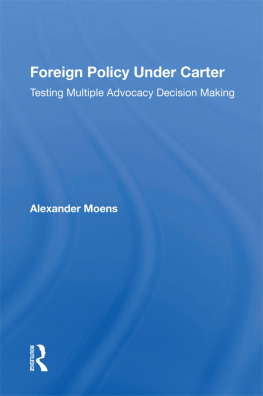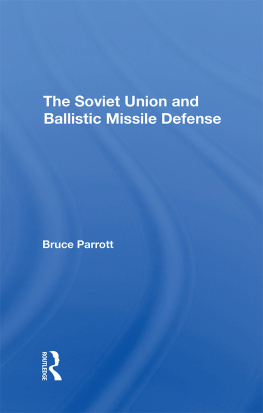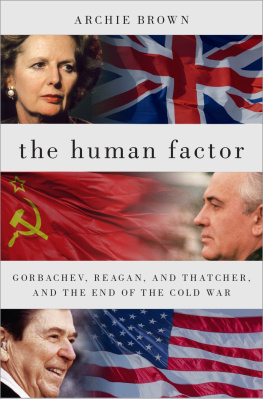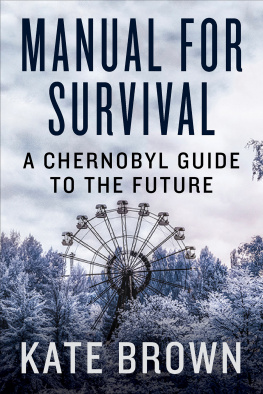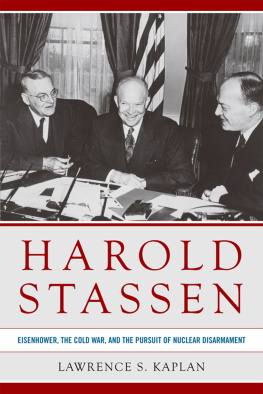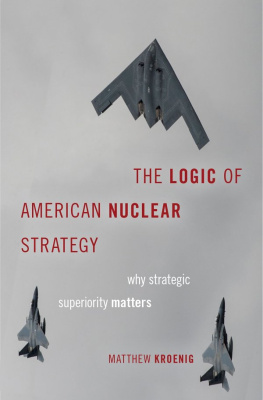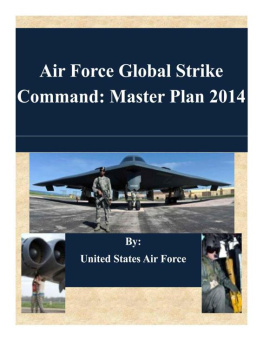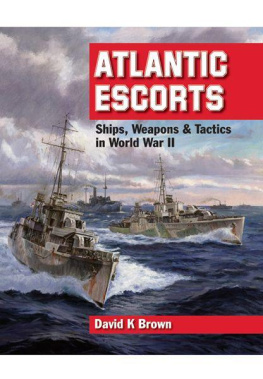
Advance Praise for
STAR SPANGLED SECURITY
Valuable lessons here for our foreign and defense policy as we go forward, and for dealing with our domestic divisions. Browns clear thinking and nonpartisanship are as welcome as they are unusual these days. Especially worth noting is his advice regarding U.S. involvement in turbulent foreign situations where we lack deep knowledge of the players and issues.
BRENT SCOWCROFT National Security Adviser to G.H.W. Bush
Browns leadership was critically important during a most dangerous period in the Cold War when the Soviets were rapidly building up forces and invaded Afghanistan. His legacy is vital to national security and his insights relevant to current issues.
WILLIAM J. PERRY 19th U.S. Secretary of Defense
Harold Browns thoughtful presentation of national security strategies and how decisions are reached comes from the perspective of somebody who has been in the middle of the action. There are fascinating stories here describing Browns part in developing ballistic missiles, GPS, and advanced aircraft, and his challenges with Edward Teller at Livermore Lab and beyond. As a former president of Caltech, Harold Brown understands the critical role of academia to technological innovation and how it binds the U.S. and its allies in a common national security position.
JEAN-LOU CHAMEAU President, California Institute of Technology
Browns extraordinary experience in science, technology, and government, and later as a member of the board of directors of a dozen U.S. companies, gives him extraordinary perspective on the intersection of innovation, entrepreneurship, and economic growtha must-read. The breadth of his intellectual prowess, in great evidence in this book, has always been an inspiration to me and will enlighten the reader.
CHARLES R. KAYE Co-President, Warburg Pincus

ABOUT BROOKINGS
The Brookings Institution is a private nonprofit organization devoted to research, education, and publication on important issues of domestic and foreign policy. Its principal purpose is to bring the highest quality independent research and analysis to bear on current and emerging policy problems. Interpretations or conclusions in Brookings publications should be understood to be solely those of the authors.
Copyright 2012 by Harold Brown
THE BROOKINGS INSTITUTION
1775 Massachusetts Avenue, N.W., Washington, D.C. 20036
www.brookings.edu
All rights reserved. No part of this publication may be reproduced or transmitted in any form or by any means without permission in writing from the Brookings Institution Press.
Library of Congress Cataloging-in-Publication data
Brown, Harold, 1927-
Star spangled security: applying lessons learned over six decades safeguarding America / Harold Brown with Joyce Winslow.
p. cm.
Includes bibliographical references and index.
ISBN 978-0-8157-2383-7
1. Brown, Harold, 1927-2. National securityUnited StatesDecision makingCase studies. 3. United StatesMilitary policyDecision makingCase studies. 4. Cabinet officersUnited StatesBiography. 5. United States. Dept. of DefenseBiography. 6. National securityUnited StatesHistory. 7. United StatesMilitary policyPlanning. I. Winslow, Joyce. II. Title.
UA23.B78449 2012
355'.033573dc23
2012033419
1 3 5 7 9 8 6 4 2
For Gene and Zo
CONTENTS
THE VIEW FROM THE TOP
ENSURING NATIONAL DEFENSE THROUGH ITS BUDGET
HOW THE TEAM AT THE TOP AFFECTS SECURITY POLICY
IRANIAN REVOLUTION AND THE HOSTAGE CRISIS
PLANS, PROGRAMS, AND AGREEMENTS
DEALING WITH THE OUTSIDE WORLD
PREPARING FOR WHAT LIES AHEAD
STIMULATING THE NATIONAL ECONOMY FOR INTERNATIONAL SECURITY
AMERICA AT A TIPPING POINT
T urning recollections, thoughts, and judgments into a more or less coherent book is no easy task. I was therefore very fortunate to have Joyce Winslow as my collaborator on this one. We worked hard during our interviews and subsequently on the text to ensure that the book represents my views in my voice. Her efforts were even more time consuming, more consistent, and more effective. Without her work in finding and negotiating with the publisher, as well as in creating a marketing plan, the manuscript might well never have reached the public.
Chris Heidenrich transcribed 700 pages of Joyces interviews and conversations with me. Joyce boiled down that collection of stories, memories, observations, assertions, analyses, and recommendations to several drafts. Multiple rearrangements, selections, editing, and reediting by both of us produced the final version. Thank you to Janet Walker at Brookings and her copy editor, Vicky Macintyre, who patiently and carefully edited our manuscript into Brookings style.
John Deutch, Walt Slocombe, and Dick Cooper, each of whom has been my colleague and friend over several decades, took more of their valuable time than I could reasonably have asked to read the manuscript at various stages. All three made extensive comments and provided additional insights that improved the final product. I am deeply grateful to each of them. I appreciate the help of my assistants, Will Schaffer and Clare Richardson-Barlow, with research and fact checking. My thanks go also to Dr. Edward Keefer, who is in the process of writing for the Historical Office of the Secretary of Defense the official history of my time as secretary of defense, for supplying useful documents from that office.
I t was raining the day of the Joint Armed Forces Farewell Ceremony that signaled the end of my service as secretary of defense, and that of my deputy secretary, W. Graham Claytor Jr.
General David Jones hosted the farewell program on Monday, January 19, 1981, at Fort Myer, Virginia. I had chosen Dave, an air force general, to be chairman of the Joint Chiefs of Staff. That choice troubled some. It didnt follow the usual practice of rotation among the services. His predecessor had also come from the air force. Some people grumbled that I picked a purple-suiter. They meant someone who did not invariably support the particular interests of his own branch of the military service. I saw the phrase as denoting a wider perspective on the entire palette of national security, transcending parochial loyalty to only the green of the army or marine uniform, or the blue of the navy and air force. I had given a strong push to the prestige of a career path in joint military service, which had been greatly undervalued.
During the fanfare and nineteen-gun salute, I thought back to my first days in office. My desk sat directly under the portrait of Americas first secretary of defense, James Forrestal. His psychological problems, surely exacerbated by the high stress of the job, ended in suicide. Forrestal jumped from a window at the Bethesda National Naval Medical Center, located a few miles from Washington. Early on I determined to stay fit and ease stress by swimming many afternoons. After the swim Id hurry back to the third floor, taking a shortcut over a low wall and climbing a flight of stairs. Coming down the corridor those first days Id see the name plaque on the door to my officeHarold Brown, Secretary of Defenseand think: is this real?




